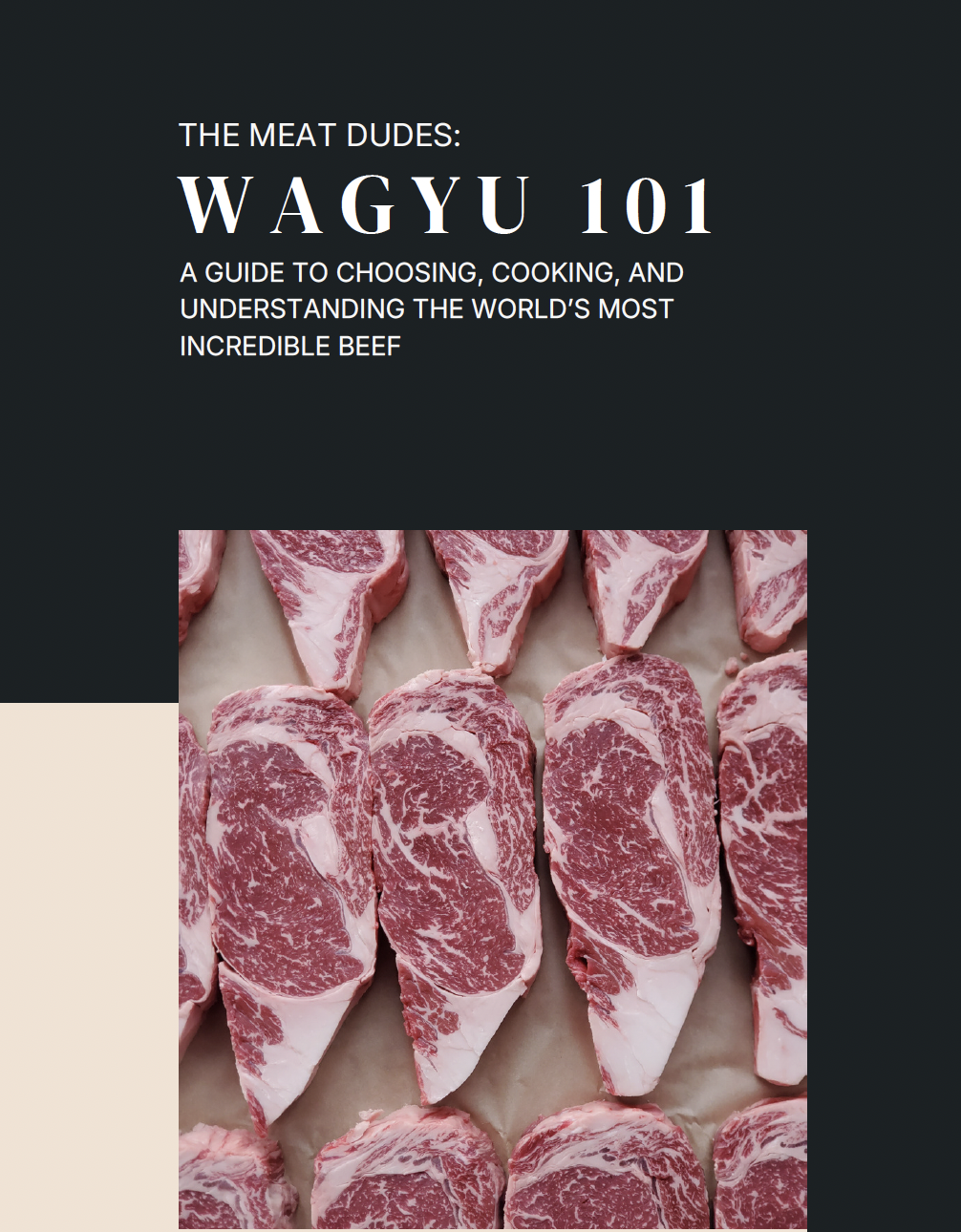Wagyu isn’t just about luxury—it’s about better fat, backed by science. When people think of Wagyu, they think luxury — the kind of steak that melts in your mouth, dripping with buttery richness. But here’s what most people don’t know: that melt-in-your-mouth experience isn’t just about flavor. It’s about chemistry. The healthy attributes of Wagyu fat go far beyond taste. Wagyu fat isn’t just more of it — it’s different. Its unique balance of monounsaturated fats, oleic acid, and beneficial omegas make it one of the most interesting and arguably healthiest animal fats in the world.
Let’s break down what makes Wagyu’s fat so special, how it stacks up to olive oil and salmon, and why “fat” might not be such a dirty word after all.
What Makes Wagyu Fat Different
Most beef fat (especially from standard breeds) is high in saturated fats — the kind that stays solid at room temperature and can raise LDL cholesterol, the “bad” type linked to heart issues.
Wagyu, on the other hand, has a completely different fat profile. It’s naturally higher in monounsaturated fats (MUFAs) — the same heart-healthy fats found in olive oil and avocados.
Here’s how that breaks down:
- Wagyu beef can have up to 55% unsaturated fat, compared to 35–40% in typical beef.
- Around 47–52% of Wagyu’s total fat is oleic acid — the same compound that gives olive oil its heart-healthy reputation.
- Because of this, Wagyu fat has a lower melting point, which is why it literally melts in your mouth.
In fact, one study in the Journal of Animal Science and Biotechnology found that the higher the marbling in beef, the higher the oleic acid levels. Wagyu’s genetics naturally push its fat composition toward this “good fat” zone.
MUFAs and Oleic Acid — The “Good Fats” Explained
Monounsaturated fats (MUFAs) are the “friendly” fats. They help lower LDL (bad cholesterol) while maintaining or even raising HDL (good cholesterol).
Oleic acid is the MVP of MUFAs. It’s the same healthy fat that dominates olive oil — and a major reason why Mediterranean diets are linked to better heart health and longevity.
Diets rich in oleic acid are associated with:
- Lower LDL (“bad”) cholesterol
- Reduced inflammation
- Better insulin sensitivity
Think of MUFAs like a healthy maintenance crew for your arteries — keeping things flowing smoothly without clogging the pipes.
So when people talk about the healthy attributes of Wagyu fat, this is what they mean: it’s rich in the same kinds of fats your body actually uses for energy and cell repair.
Comparing Wagyu Fat to Olive Oil and Salmon
Here’s how Wagyu stacks up against other well-known healthy-fat sources:
| Fat Source | Main Healthy Fat | Melting Point | Omega Profile | Texture/Use |
|---|---|---|---|---|
| Wagyu Beef | Oleic acid (MUFA) | Low (~77°F) | Some omega-3 & omega-6 | Soft, buttery, rich flavor |
| Olive Oil | Oleic acid (MUFA) | Liquid (~39°F) | Trace omega-3 & omega-6 | Clean, light, neutral |
| Salmon | EPA & DHA (omega-3 PUFA) | Liquid (~28°F) | High omega-3 | Clean, oily, heart-healthy |
The takeaway:
Wagyu isn’t competing with fish for omega-3s — but in the world of red meat, it’s the olive oil of beef.
Its fat is more fluid, flavorful, and heart-friendly than the waxy, saturated fat you find in standard supermarket steaks.
The Omega Breakdown: What’s “Good” vs “Bad”
To simplify:
- Omega-3 (good): Found in fish, flax, and small amounts in Wagyu. Helps reduce inflammation and supports brain and heart health.
- Omega-6 (fine in balance): Essential, but too much without omega-3s can lead to inflammation.
- Omega-9 (great): That’s oleic acid — the star of Wagyu fat. Supports healthy cholesterol levels and reduces inflammation.
The healthy attributes of Wagyu fat come partly from its improved omega balance — more omega-9s, fewer hard saturated fats, and just enough polyunsaturated fats (PUFAs) for a smooth, rich flavor that’s easier on your body.
The Science Backs It Up
Here’s what the research says:
- A 2024 Frontiers in Animal Science study found that Wagyu beef’s high oleic acid levels correlate with lower melting points and improved tenderness — better for taste and digestibility.
- Research published in Food Science of Animal Resources showed Wagyu’s fat composition may improve blood lipid profiles compared to other breeds.
- The World Wagyu Council confirms that Wagyu’s fat contains more monounsaturated than saturated fats — and that’s what gives it both its tenderness and nutritional edge.
So… Is Wagyu Actually “Healthy”?
Let’s be honest — Wagyu is still rich. A 4-ounce ribeye packs serious calories. But if you’re choosing to enjoy beef, this is the fat to have.
Because of its unique composition, your body metabolizes it more efficiently. It’s not “diet food,” but it is a smarter indulgence.
Think of it this way:
- A standard steak is fuel.
- A Wagyu steak is fuel with finesse.
The Meat Dudes Takeaway
When it comes to red meat, Wagyu proves fat isn’t the enemy — it’s the type of fat that matters.
- More monounsaturated fats and oleic acid
- Lower melting point and smoother mouthfeel
- Easier to digest, more balanced omega profile
- And that unforgettable Wagyu flavor
The healthy attributes of Wagyu fat make it the best of both worlds — indulgence that your body can actually feel good about.
So next time someone says Wagyu is “too fatty,” tell them the truth: it’s just the right kind of fat.



